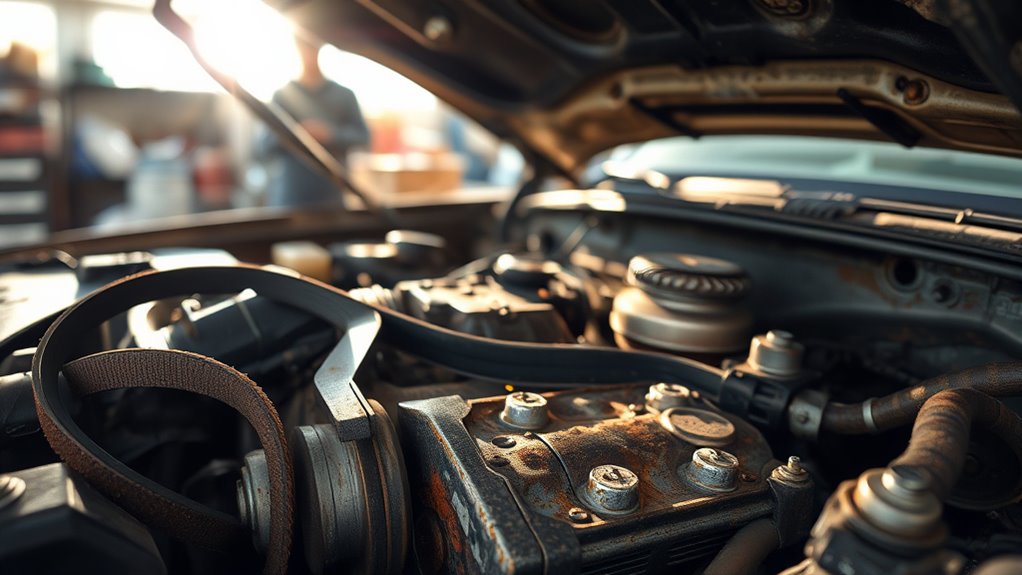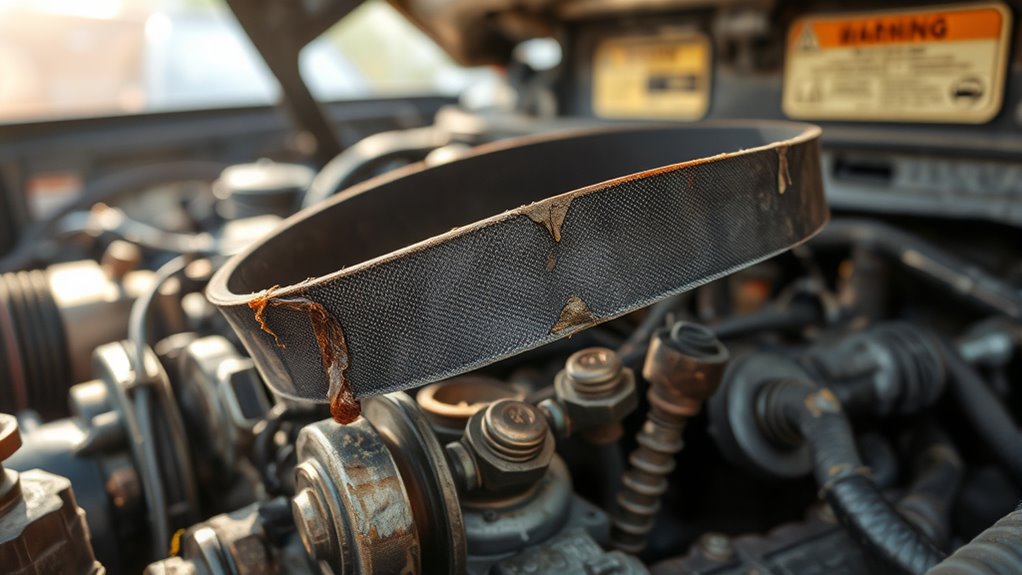Skipping car maintenance may save you money upfront, but it hides costly risks that can damage your vehicle and compromise safety. Uneven tire wear, engine damage, and worn-out components often develop silently, leading to expensive repairs later. Neglecting routine checks like oil changes and brake inspections accelerates wear and shortens your vehicle’s lifespan. Pay attention now, and discover how these small oversights can turn into major expenses down the road.
Key Takeaways
- Neglecting routine maintenance leads to uneven tire wear, reducing tire lifespan and increasing replacement costs.
- Skipping oil changes causes engine wear, debris buildup, and decreased fuel efficiency, risking costly repairs.
- Ignoring checks on filters, brakes, and suspension accelerates component damage and safety hazards.
- Small maintenance oversights can escalate into major, expensive repairs over time.
- Regular maintenance preserves vehicle safety, efficiency, and long-term value, preventing hidden costs down the road.

Skipping regular car maintenance might save you money in the short term, but it can lead to hidden costs that drain your wallet over time. One of the most immediate issues you’ll face is uneven tire wear. When you neglect routine tire rotations and inspections, your tires wear unevenly, reducing their lifespan and increasing the need for replacements. Worn tires don’t grip the road as effectively, which can compromise your safety and lead to more frequent replacements. Over time, this seemingly small oversight can add up, costing you far more than regular maintenance would have.
Another critical aspect often overlooked is oil degradation. Oil plays a essential role in keeping your engine running smoothly by lubricating moving parts and preventing excessive heat buildup. When you skip oil changes, the oil breaks down and becomes less effective. As a result, your engine faces increased friction, which can cause accelerated wear and even engine failure in severe cases. The longer you go without changing your oil, the more debris and sludge build up, making your engine work harder and decreasing fuel efficiency. While delaying oil changes might seem like a way to save money, it’s a false economy that often leads to costly repairs down the line.
Beyond tires and oil, neglecting maintenance also impacts other crucial components. For instance, failing to check and replace filters can clog your engine and reduce its performance. Worn brake pads can compromise safety and lead to more expensive repairs if they’re ignored. The cumulative effect of these small oversights can turn into significant expenses that might have been avoided with routine maintenance.
You might think skipping these steps saves you money now, but the truth is, neglecting maintenance creates a cycle of escalating costs. Small issues, like uneven tire wear and degraded oil, are early warning signs that something is amiss. Addressing them promptly keeps your vehicle running efficiently and prevents costly breakdowns. If you ignore these signs, you risk damaging your engine, transmission, or suspension—repairs that can cost thousands. Regular check-ups and maintenance are investments that protect your vehicle’s longevity and save you money in the long run. Additionally, neglecting certain components, like your suspension, can lead to decreased handling and increased wear on tires and other parts.
Frequently Asked Questions
How Often Should I Schedule Routine Car Maintenance?
You should schedule routine car maintenance based on your vehicle’s manual, typically every 5,000 to 7,500 miles. During these visits, get an oil change to keep your engine running smoothly and a tire rotation to promote even wear. Regular maintenance helps prevent costly repairs, improves safety, and extends your car’s lifespan. Don’t wait too long—staying consistent with these services keeps your car running reliably and efficiently.
What Are Signs My Car Needs Immediate Service?
Imagine you’re driving and suddenly see warning lights pop up on your dashboard. You also hear strange noises coming from your car. These are clear signs you need immediate service. Don’t ignore warning lights or strange noises—they often indicate serious issues like brake failure or engine trouble. Addressing these signs promptly can save you from costly repairs later and keep you safe on the road.
Can Skipping Maintenance Affect My Car’S Resale Value?
Skipping maintenance can substantially affect your car’s resale impact. When you neglect regular upkeep, potential buyers notice signs of maintenance neglect, which lowers your vehicle’s value. A well-maintained car shows fewer issues and runs better, making it more appealing. If you want to get the best resale price, you should keep up with routine maintenance, as neglecting it can diminish your car’s worth and make it harder to sell later.
Are There Specific Maintenance Tasks More Critical Than Others?
Did you know that neglecting routine maintenance can increase your car’s repair costs by up to 50%? When considering specific tasks, an oil change tops the list for critical maintenance, keeping your engine running smoothly. Tire rotation is also essential, as it promotes even wear and extends tire life. Prioritizing these tasks can prevent costly repairs and make certain your vehicle performs reliably for years to come.
How Can I Budget for Regular Car Maintenance Costs?
To budget for regular car maintenance costs, start with a clear cost estimation based on your vehicle’s make and model. Track your expenses consistently to identify patterns and set aside a monthly amount for upkeep. Prioritize routine tasks like oil changes and tire rotations, which prevent costly repairs later. By actively managing your expense tracking, you guarantee you’re financially prepared for maintenance needs without surprises.
Conclusion
So, next time you skip that oil change or ignore that dashboard warning, remember—you’re saving a few bucks now, but secretly paying for it later. Ironically, neglecting small maintenance tasks can turn into big, costly repairs down the road. It’s almost funny, isn’t it? The very act of avoiding routine upkeep might just be the most expensive shortcut you could ever take. Don’t let irony be the reason you’re stuck footing a hefty bill.









